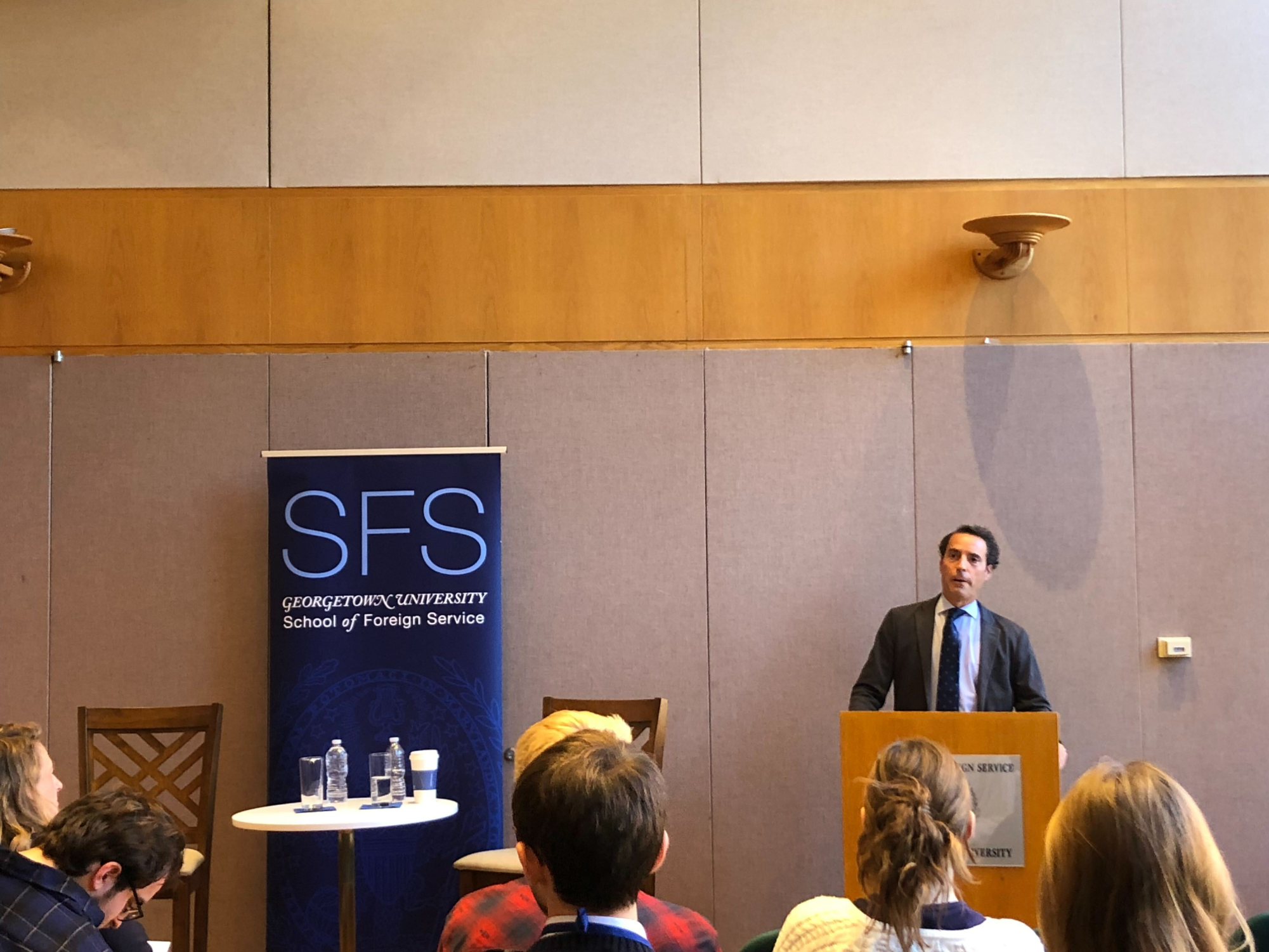An international military official argued in favor of continued transatlantic military cooperation at a Georgetown University event Oct. 21.

Javier Colomina, a Spanish diplomat who is the North Atlantic Treaty Organization’s (NATO) deputy assistant secretary general for political affairs, addressed a range of topics at the event, including the Russia-Ukraine war, Western relations with China and adapting to nationalist trends. Colomina also expressed hope that his visit to Washington, D.C. will encourage support for effective multilateral military cooperation and advancement of Western interests.
Colomina said Russia and China pose a significant threat to NATO security, as China continues its naval standoff against the Philippines and Russian drones violate Polish airspace.
“We’ve seen all sorts of attempts of very reckless behavior from Russia in the last weeks,” Colomina said at the event. “We’ve seen drones in Poland. We’ve seen airspace violations in Estonia. We have also China, which is a challenge among the threats that is a systemic one, a decisive enabler of the war, and in Ukraine that is clearly contributing to what we see.”
Russia launched its full-scale invasion of Ukraine in February 2022, while allegations of Chinese financial and military support have driven a deeper wedge in international relations.
Colomina said resolving transatlantic security issues like the Russia-Ukraine war is difficult due to disagreements among NATO member states.
“We pushed the Europeans not to whine about being at the table, not to complain about being involved,” Colomina said. “The Secretary General argued that we need to get the act together and work on something that is concrete and that gives answers to what we might be doing if we end up in a first ceasefire then at these negotiations.”
European Union (EU) leaders reportedly criticized President Donald Trump’s handling of the conflict, including sidelining them from direct negotiations with Russia. After a contentious meeting between Trump and Ukrainian President Volodymyr Zelenskyy in February, EU leaders promised to support Ukraine with European peacekeepers.
Colomina said that while challenges to U.S.-European relations exist, the conflict’s containment in Ukraine demonstrates the effectiveness of NATO’s coordinated deterrence.
“What happened from February 2022 is, in my view, confirmation that NATO deterrence works,” Colomina said. “The Russians went only up to where they could go, and they didn’t cross any line into NATO territory. There’s different ways of saying it, but I believe that at the end of the day, our deterrence works.”
Isaac Hawkins (SFS ’26), who attended the event, said Colomina’s answers were a reassuring continuity at a time of global uncertainty.
“I feel more hopeful than I did beforehand,” Hawkins told The Hoya. “It was good to hear just certain positions restated. And ultimately, I find it helpful to always know what they’re up to and how the U.S. is interacting with our allies abroad.”
Colomina said commitments to NATO made by the United States are central to deterrence and peacekeeping efforts because of the United States’ ability to quickly place ships and soldiers.
“Whenever you see that there is a crisis or tension, look at the aircraft carrier from the Americans,” Colomina said. “They’re always positioned in places where they will certainly bring stability, just by the deterrent effect of it.”
Colomina said that while NATO adheres to democratic values, it occasionally needs to take a more utilitarian approach to security.
“At the end of the day, we are, of course, an alliance of principles and values,” Colomina said. “But we are what we are, and what we are is to protect our societies and protect one billion people. To do that, sometimes we need to get over some principles and values. We understand democracy works in different ways.”
Colomina said NATO’s core mission is to address modern-day threats through multilateral cooperation.
“We come from the conviction that the challenges and threats that we see these days need all of us working together, not just the allies, but also the allies and partners,” Colomina said.